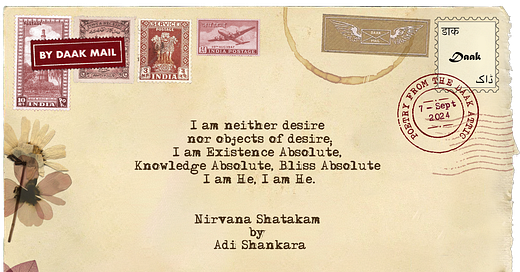Daak Weekly: What is the True Self? Some Answers from Ancient Texts
Ever wondered why there are mirrors inside or next to elevators? Besides creating an illusion of space, they provide a great distraction, directing our attention away from the wait time or the awkwardness of proximity, to our favourite topic: our own self!
Human beings are inherently self-obsessed, and we love to ruminate on our own thoughts, words and actions, and the reactions they elicit in others. As complex beings shaped by chemistry and biology as well as social forces and cultural values, this is only natural. At any time, we have several conflicting feelings, and it would not be a stretch to say that most of us are strangers to ourselves, with our real motives and desires lying hidden beneath the veneer of convention and propriety.
How then can we discover the true nature of our selfhood — the core and kernel, the very essence of our being? Many ancient texts from the subcontinent have grappled with this question, often presenting riddles and metaphors to help us unravel this great mystery.
The “Atma Shatakam,” an 8th century poem by Adi Shankara, explains the process of examining one’s “atman” (true self) by rejecting the superficial attributes, vices, virtues, and relationships imposed upon our real selves. Shankara, an Indian philosopher and theologian, reminds us that the way to understand our true self is not by defining what we are but by discarding what we are not. Legend has it that a young Shankara, while meandering in the Himalayas looking for his guru, encountered a sage who asked him, “Who are you?” The boy answered with verses that came to be known as the “Nirvana Shatakam,” “Atma Shatakam,” or simply “The Song of Self.”
Another example is the Kathopanishad, perhaps the most well-known Upanishad, which is primarily a meditation on the self. Estimated to have been written around the 5th century BCE, the main text of this work is a dialogue between Yama, the Lord of Death, and Nachiketa, the spirited prepubescent son of Rishi Vājashrava, who presents three requests to Yama, one of which is the knowledge of the ultimate truth and life after death.
What follows is a complex and elaborate philosophical reflection on the human condition. Rich in metaphor, this text serves as a great reminder of the ultimate insignificance of our physical form and the recognition of a universal spirit that unites us.
Love,
Team Daak




